This article was co-authored by Tu Anh Vu, DMD. Dr. Tu Anh Vu is a board certified dentist who runs her private practice, Tu's Dental, in Brooklyn, New York. Dr. Vu helps adults and kids of all ages get over their anxiety with dental phobia. Dr. Vu has conducted research related to finding the cure for Kaposi Sarcoma cancer and has presented her research at the Hinman Meeting in Memphis. She received her undergraduate degree from Bryn Mawr College and a DMD from the University of Pennsylvania School of Dental Medicine.
wikiHow marks an article as reader-approved once it receives enough positive feedback. This article received 56 testimonials and 100% of readers who voted found it helpful, earning it our reader-approved status.
This article has been viewed 5,286,912 times.
Toothaches occur when the extremely sensitive central portion of the tooth, called the pulp, becomes inflamed. This can happen for a variety of reasons: cavities, a blow to the tooth, or an infection of the gums. Read on for information on how to cure a toothache yourself or determine when it's time to go to the dentist.
Steps
Soothing Pain Quickly (Easy Methods)
-
1Take an over-the-counter painkiller. Non-steroidal anti-inflammatory drugs (NSAIDs) such as Aspirin and Ibuprofen, provide quick, effective relief for most minor toothaches.[1] Tylenol is also a good over-the-counter medication.[2] Having a throbbing tooth can impede your ability to eat, speak, and get to sleep. It's also more difficult to treat the toothache when you're in pain, so getting some relief from an over-the-counter pain medicine can help.
- If the pain is intense and/or you can feel it radiating to other neighboring areas such as your ear, head, or throat, then an emergency appointment to your dentist is necessary.[3]
- Use only the recommended dosage printed on the package, or the dosage recommended by your doctor.
-
2Apply a cold compress. Fill a food storage bag with ice, cover it with a thin cloth or paper towel, and apply it directly to the tooth or the cheek area just outside the tooth. The cold temperature will help ease the pain. Using a ice pack instead of a bag will have the same effect, but be sure to cover it with a towel.[4]
- There are cases of pulpitis when the pain calms down with a warm temperature. If the pain increases with the cold pack, switch to a warm compress.
- Do not apply the ice directly to the tooth. This will increase the pain, especially since teeth inflamed by toothaches are often quite sensitive to hot or cold temperatures.
Advertisement -
3Numb the area. Buy an over-the-counter tooth and gum numbing gel to help ease the throbbing for a few hours. These gels are applied directly to the affected area and usually work for several hours, but saliva dilutes the effects of the gel and spreads it down your throat or over your tongue so do not swallow any.[5]
-
4Clean your mouth thoroughly. Sometimes toothaches are caused by small pieces of food that have gotten lodged in the tooth and are exacerbating the pain of cavities or gingivitis. When this is the case, thoroughly cleaning your mouth can go a long way toward eliminating the pain and making the problem go away.[6]
- Floss around the tooth. Make sure the floss goes up to your gums. Sweep it back and forth across the tooth so that it picks up any particles that have lodged there.
- Brush the area. If your ache is caused by gingivitis, this is one of the best ways to ease the pain. Brush your teeth for several minutes, concentrating on the painful area. Keep brushing until the area no longer feels as sensitive.
- Use a rinse. Finish the cleaning by using mouthwash to rinse away dislodged particles. Or, or pour a few drops of bee propolis into a half of a glass of water and use this to rinse your mouth.
- Keep it up. Use this routine twice a day, every day, and keep using it after the pain subsides.
-
5Use a sea salt rinse. A toothache caused by a blow to the tooth or a mild infection might go away on its own. To help it along, make a rinse with warm water and a spoonful of sea salt.[7] When the salt dissolves, gargle the water in your mouth, making sure it splashes around the affected area. Repeat several times daily until the pain subsides.
Medical Treatments
-
1Know when to see the doctor. If the toothache is caused by a major infection or tooth decay, it won't go away on its own. You should see a doctor or dentist if you experience the following symptoms along with the toothache:[8]
- A fever and chills. This could be a sign that the infection is serious and the symptoms will get worse.[9]
- Discharge. Again, you don't want to risk letting a bad infection get worse.[10]
- Pain that grows worse and won't go away, even after taking medication. You could have a cavity that gets worse after every meal.
- The pain is in a wisdom tooth. Many people have to get their wisdom teeth removed if the teeth grow in at an angle that crowds the mouth.
- You have trouble swallowing or breathing, which may be caused by an abscess.
-
2Get a filling. If you have a cavity that is exposing the nerves of your teeth, leading to pain, the dentist may decide to put in a filling to protect the nerves in the pulp from getting overstimulated.[11]
-
3Get a root canal. If you have a dental abscess, which happens when the pulp of the tooth gets infected, a root canal will be performed. The dentist cleans the inside of the tooth to get rid of the infection. Since this procedure may be painful, the mouth is numbed with local anesthesia beforehand, especially if the dentist performs a surgical drainage of the abscess through the gum.
-
4Get a tooth extraction. In some cases the tooth is beyond repair, and the best course is to get it taken out. In the case of baby teeth, an extraction is almost always performed, since the teeth are going to fall out eventually anyway.[12]
- Adults who get an extraction often get bridges or dental implants to make up for the lost tooth.
- In the case of wisdom teeth, tooth extraction is almost always performed because the functional advantage is not always one of the best and the position of the tooth does not allow for a proper root canal treatment. In some cases, when patients are scared or the wisdom tooth is severely impacted, patients can be put under general anesthesia. Recovery takes a week or so.
Using Alternative Methods
-
1Apply clove oil. This is a home remedy that is said to cure or at least ease the pain of a toothache until it goes away on its own. Rub a few drops on the affected tooth several times daily until the ache goes away. Clove oil can be found at most drug stores.
-
2Try hard liquor. This time-worn home remedy eases the pain of a toothache, but it probably won't cure it. Still, it's a useful trick when the ache is caused by a blow or a mild infection that will go away after a few days. Pour some whisky or vodka on a cotton ball and apply it to the affected tooth. If the gums become red or irritated, then stop using this method.
-
3Clean with hydrogen peroxide. This procedure will clean the area, and can help to ease the pain. Be sure to rinse your mouth with water, and absolutely refrain from swallowing the peroxide.[13]
- Dip a Q-tip in hydrogen-peroxide, ensuring saturation.
- Apply the peroxide liberally to the affected area.
- Repeat.
-
4Try an acupressure technique to stop tooth pain fast. With your thumb, press the point on the back of your other hand where the base of your thumb and your index finger meet. Apply pressure for about two minutes. This helps trigger the release of endorphin, the brain’s feel-good hormones.
-
5Oil Pulling. Swish 1 tablespoon (14.8 ml) of coconut oil in your mouth for 15-20 minutes. There are claims that this reduces the amount to harmful bacteria in the mouth. When you swish the oil, the bacteria get 'stuck' in the oil. This is how the bacteria, as well as plaque caused by bacteria is removed. After 15-20 minutes spit out the oil into a garbage can. Do not swallow it...you will be swallowing the bacteria in the oil if you swallow it. You also should not put oil in the drain, as it can harden and cause it to clog.
Expert Q&A
Did you know you can get expert answers for this article?
Unlock expert answers by supporting wikiHow
-
QuestionWhat if it still hurts. Then what do I do?
 Cristian Macau, DDSDr. Macau is an oral surgeon, periodontist, and aesthetician at Favero Dental Clinic in London. He received his DDS from Carol Davila University of Medicine in 2015.
Cristian Macau, DDSDr. Macau is an oral surgeon, periodontist, and aesthetician at Favero Dental Clinic in London. He received his DDS from Carol Davila University of Medicine in 2015.
Doctor of Dental Surgery
-
QuestionHow can a protruded tooth be corrected without braces?
 Cristian Macau, DDSDr. Macau is an oral surgeon, periodontist, and aesthetician at Favero Dental Clinic in London. He received his DDS from Carol Davila University of Medicine in 2015.
Cristian Macau, DDSDr. Macau is an oral surgeon, periodontist, and aesthetician at Favero Dental Clinic in London. He received his DDS from Carol Davila University of Medicine in 2015.
Doctor of Dental Surgery If the tooth is not fully developed and the root is still forming, you can apply low pressure with your thumb to make it grow in the right position. Depending on the tooth, tongue and lips can also help a lot. If the tooth has completed the evolution process and you are a grown up already then maybe veneers or crowns can be the answer in this case.
If the tooth is not fully developed and the root is still forming, you can apply low pressure with your thumb to make it grow in the right position. Depending on the tooth, tongue and lips can also help a lot. If the tooth has completed the evolution process and you are a grown up already then maybe veneers or crowns can be the answer in this case. -
QuestionHow do you stop a toothache at home?
 Tu Anh Vu, DMDDr. Tu Anh Vu is a board certified dentist who runs her private practice, Tu's Dental, in Brooklyn, New York. Dr. Vu helps adults and kids of all ages get over their anxiety with dental phobia. Dr. Vu has conducted research related to finding the cure for Kaposi Sarcoma cancer and has presented her research at the Hinman Meeting in Memphis. She received her undergraduate degree from Bryn Mawr College and a DMD from the University of Pennsylvania School of Dental Medicine.
Tu Anh Vu, DMDDr. Tu Anh Vu is a board certified dentist who runs her private practice, Tu's Dental, in Brooklyn, New York. Dr. Vu helps adults and kids of all ages get over their anxiety with dental phobia. Dr. Vu has conducted research related to finding the cure for Kaposi Sarcoma cancer and has presented her research at the Hinman Meeting in Memphis. She received her undergraduate degree from Bryn Mawr College and a DMD from the University of Pennsylvania School of Dental Medicine.
Board Certified Dentist I would recommend a patient to take over the counter either Tylenol or Motrin, and try to rinse a warm salt water, and then see a dental professional as soon as they can to see what the underlying cause is. Temporarily, the over-the-counter anti inflammatories, such as Tylenol or ibuprofen, should help for the short term, but if the pain lasts longer than a few days, you should see a professional.
I would recommend a patient to take over the counter either Tylenol or Motrin, and try to rinse a warm salt water, and then see a dental professional as soon as they can to see what the underlying cause is. Temporarily, the over-the-counter anti inflammatories, such as Tylenol or ibuprofen, should help for the short term, but if the pain lasts longer than a few days, you should see a professional.
References
- ↑ Tu Anh Vu, DMD. Board Certified Dentist. Expert Interview. 20 May 2020.
- ↑ http://www.webmd.com/oral-health/guide/toothache
- ↑ Tu Anh Vu, DMD. Board Certified Dentist. Expert Interview. 20 May 2020.
- ↑ https://my.clevelandclinic.org/health/diseases/10957-toothache
- ↑ https://www.nhs.uk/conditions/toothache/
- ↑ https://www.mayoclinic.org/first-aid/first-aid-toothache/basics/art-20056628
- ↑ Tu Anh Vu, DMD. Board Certified Dentist. Expert Interview. 20 May 2020.
- ↑ Tu Anh Vu, DMD. Board Certified Dentist. Expert Interview. 20 May 2020.
- ↑ http://www.webmd.com/oral-health/guide/toothache
About This Article
To cure a toothache, hold a cold compress or ice pack against your cheek where your tooth hurts until the pain subsides. You can also gargle with salt water several times a day, which may help your toothache heal faster and relieve some of the pain. If your toothache persists, take an over-the-counter painkiller like Ibuprofen. For even more relief, buy a tooth-numbing gel and apply it directly to the tooth that hurts. For more advice from our Dental reviewer, including home remedies you can use to cure your toothache, read the article!
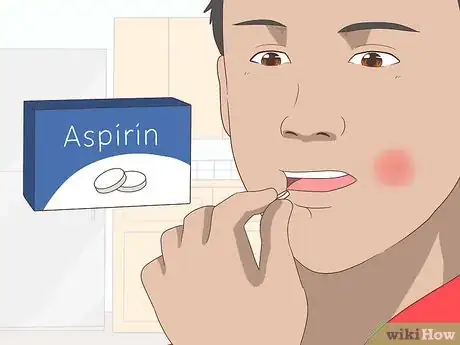

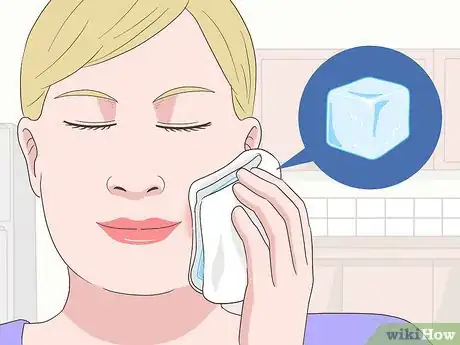
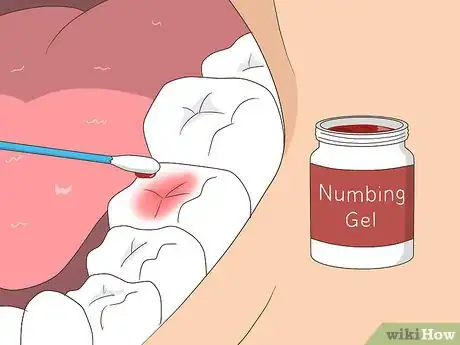
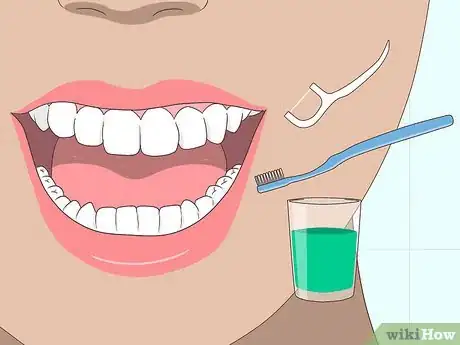

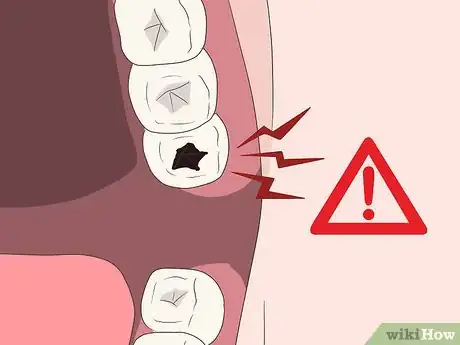
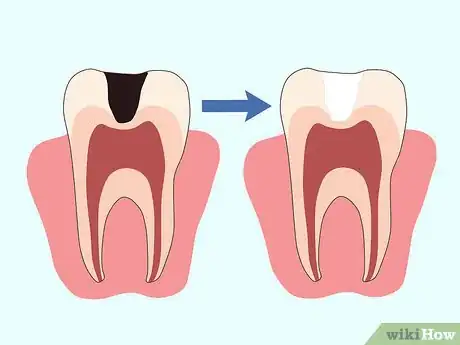
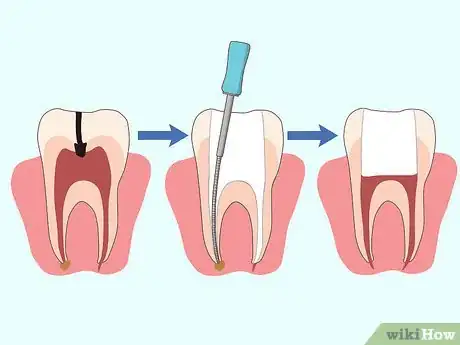
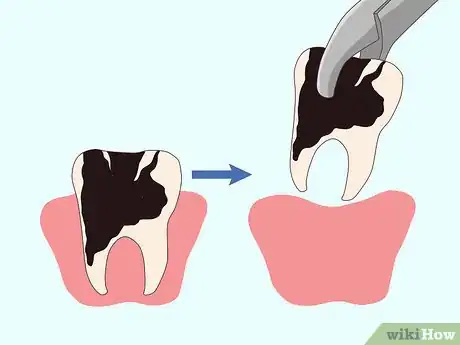
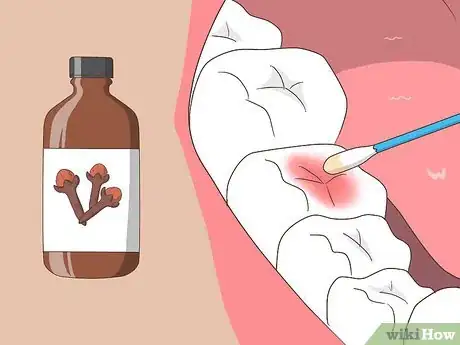
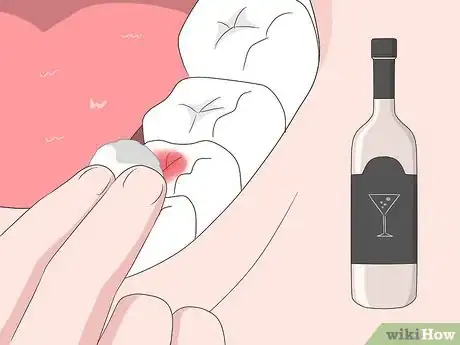
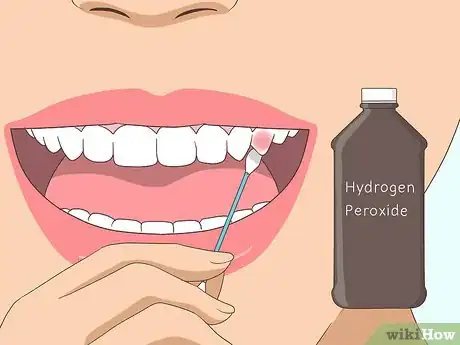
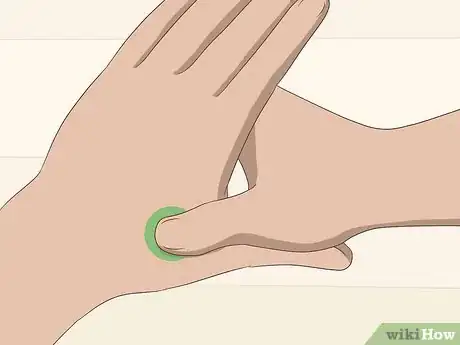
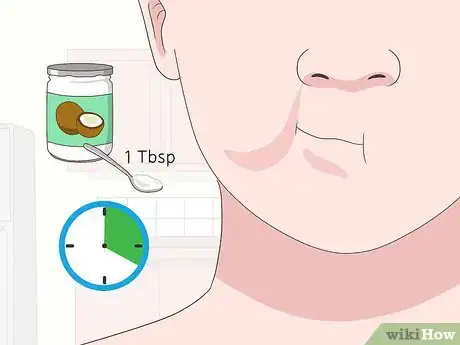


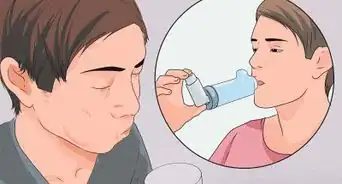

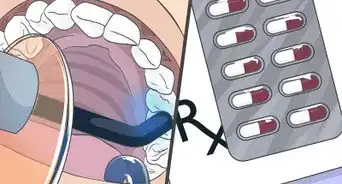
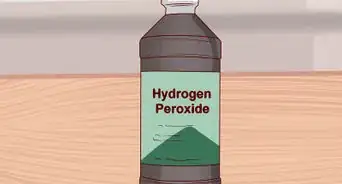
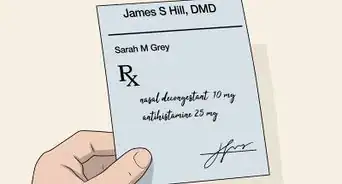
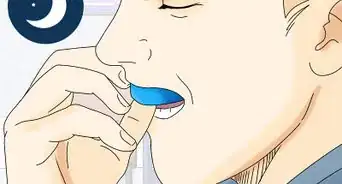
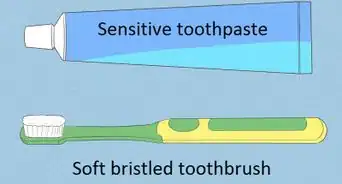
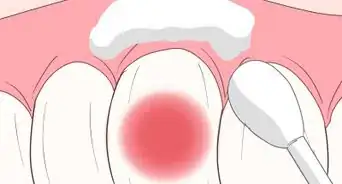


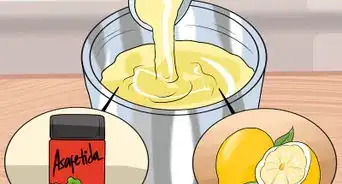
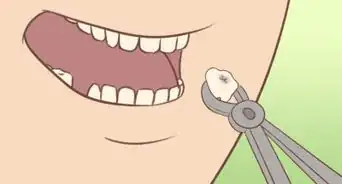

















































Medical Disclaimer
The content of this article is not intended to be a substitute for professional medical advice, examination, diagnosis, or treatment. You should always contact your doctor or other qualified healthcare professional before starting, changing, or stopping any kind of health treatment.
Read More...